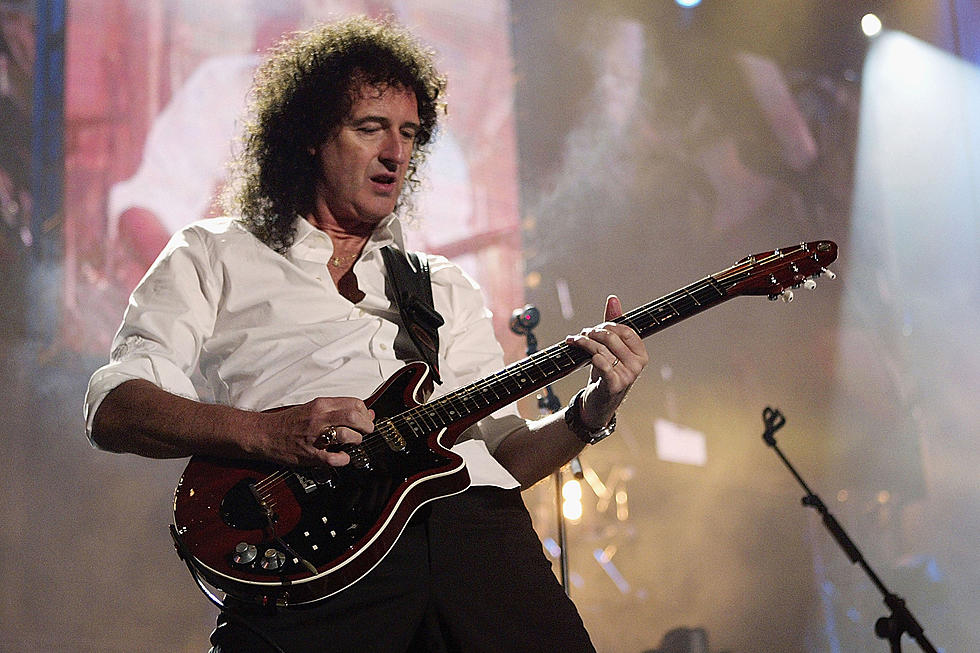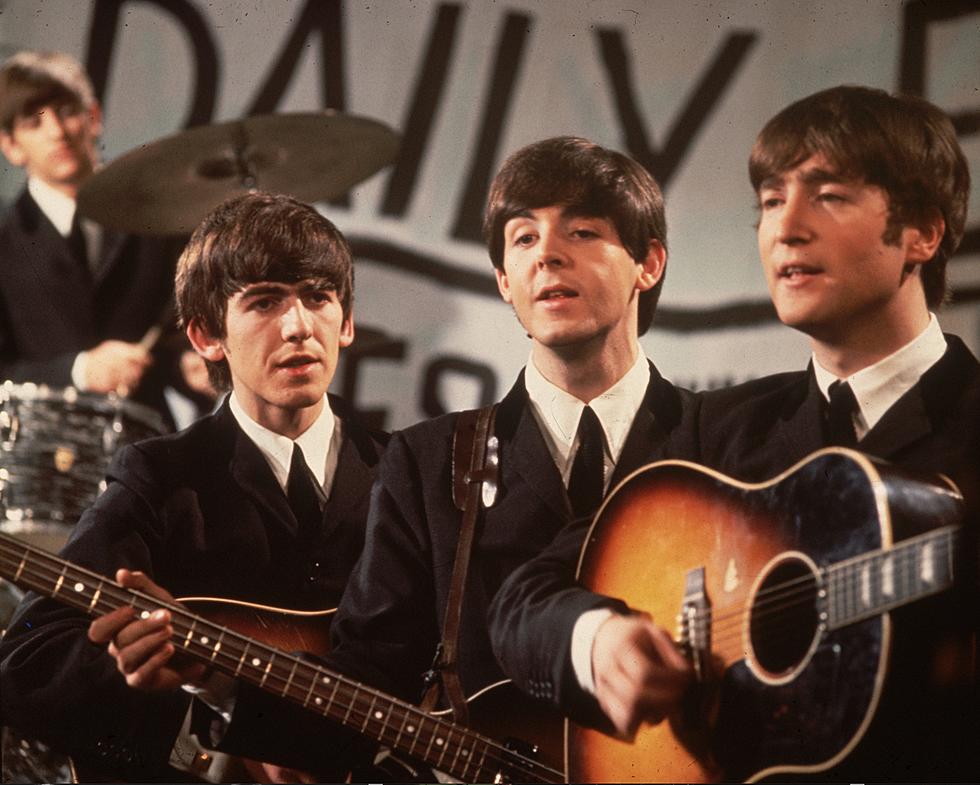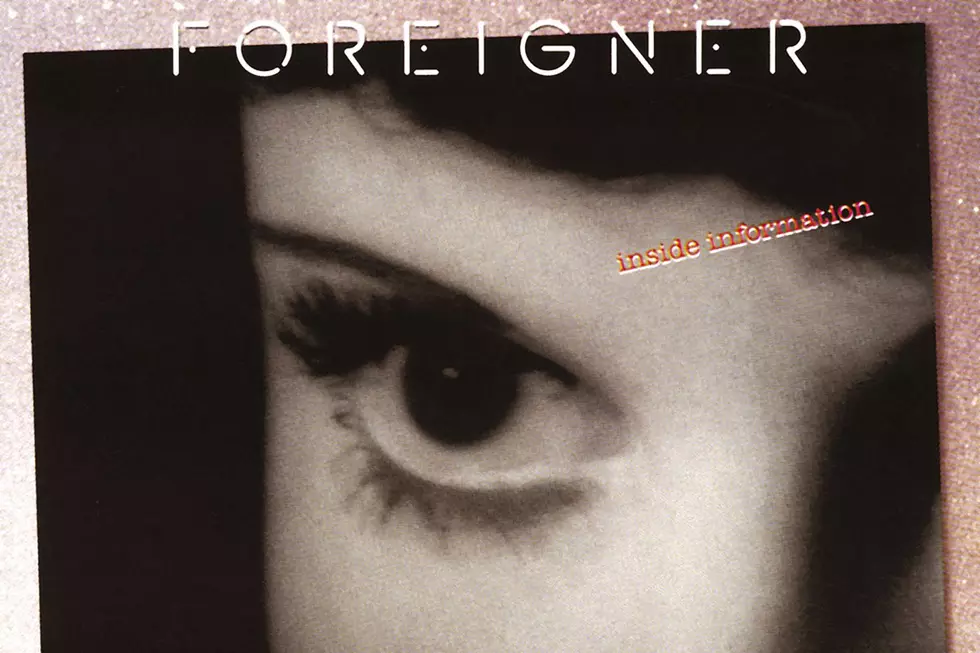
Brian May Shares Memories About GNR and Eddie Van Halen: Interview
Guitarist Brian May is in the process of revamping his entire solo catalog, starting with 1993's Back to the Light, his first LP outside of Queen following the death of the band's singer, Freddie Mercury.
May toured extensively in support of the record, mounting a lengthy solo headlining tour, as well as playing dates supporting Guns N' Roses.
Nearly 30 years after its release, Back to the Light has been expanded with a bonus disc of extras, including alternate versions and some live material. May shares plans for future releases as well as some memories from the era, like the time Slash turned up to play Queen's "Tie Your Mother Down" with May and his band on The Tonight Show, a moment preserved on the new reissue.
How did the collaboration with Slash come about?
I don’t know when I first met Slash, but I’m happy to say that we have a continuing friendship. I guess I was around him mostly when I did that support tour for Guns N’ Roses all over the world. It was great for me, because I was playing with people who I respect and they also respect me. Axl [Rose] was known for being difficult and whatever, you know, he was always great to me. He always had time to speak to me. I used to go into Axl’s dressing room before they went on. Because Axl would normally have something he wanted to say to me or ask me, which was part of his preparation for going onstage. Slash was just always very relaxed, very cool. That’s always been the way I’ve seen Slash. He’s a real gentleman and a fantastic musician, obviously.
It was great when he played with us when we were on The Tonight Show. There’s a funny story there, because Slash normally had the cigarette in his mouth. In the rehearsal, these people came over, very seriously, and said, “I’m afraid you can’t do that, Mr. Slash. It’s not allowed by the regulations.” He went, “Huh, okay.” He put it out. When the time comes and the cameras roll and we’re live, really truly live on Jay Leno’s show, it’s not recorded, he comes on with a cigarette in his mouth. I just looked at him and went, “Yeah, that’s Slash.” You can’t really take that away from him. Not that I want him to smoke. I hate smoking, because it killed my dad. But Slash is an independent spirit. And boy, did he play good.
Watch Brian May and Slash Perform 'Tie Your Mother Down' on 'The Tonight Show'
The tribute concert was an unbelievable day of music, and I can’t imagine what that must have been like for you. That would be a lot.
It was incredible. One of those days you look back on and think, “God, I must have been dreaming.” To have all of those wonderful people around, all with a great spirit in them, it was incredible. Everybody came through for us - including Slash and Axl and the boys, Duff [McKagan] and Matt [Sorum] and all of those guys. Extreme, Roger Daltrey and Robert Plant, Tony Iommi, David Bowie. It was the most unbelievable day. Everybody’s there with a kind of gentle smile, because they know they’re there for the right reasons, which were twofold: to celebrate Freddie’s life and to attack AIDS, and get rid of the stigma around AIDS once and for all. I think it did a fair job in kicking things in that direction, certainly in the U.K. and I think to a certain extent, around the world as well.
You're recording parts of the Back to the Light album as the whole grunge revolution starting to unfold. How much were you into those bands?
A little bit. I was very depressed. I wasn’t listening to much anyway. I was dimly aware of some of it. I was aware of Nirvana. Do they count?
Absolutely!
[Laughs] Okay, archetypal. Yeah, well, I loved that. I thought that was great. I love people with passion. And it’s not related to how much dexterity they have on their instruments, it’s what comes from the soul.
Kurt Cobain, for me, looked like a kindred spirit. I wish I’d met him. I never did. And of course, Dave Grohl was in that band. It was amazing. The rest of it, probably less so. Alice in Chains, I was aware of, but I probably couldn’t sing you their songs. I remember visiting Seattle around that time and kind of drinking it in. I was realizing that something big was happening - and in a good way. I remember getting kind of immersed in the graffiti. I’d always kind of hated graffiti up to that time, because in Britain it’s just a mess. When I went to Seattle, I saw all of these beautiful colored things on the walls everywhere. It kind of reminded me of psychedelia and the days when I was a boy. It was cool to paint everything in fluorescent paint or whatever. I just felt it was a great community. There was a movement going on there.
Watch Cozy Powell Perform With Brian May
How did the band of players come together for the album? Cozy Powell is a monster drummer. It’s great that you captured those moments on the albums and tour. You assembled a great lineup.
Yeah, Cozy was the core. Without Cozy, I don’t think I could have done it. He had such a fountain of positivity and humor. I remember talking to him. You kind of know people, but you don’t know them. You’ve said hello someplace. Backstage at the Hyde Park concert in 1976, Cozy was there. I got to talking to him in-depth for the first time, and he was saying how much he liked what I did. I was really surprised, because I regarded Cozy as part of a genre which was one step heavier than I was. It was the Rainbows, the Whitesnakes, Deep Purple - Cozy was part of that thing. He said, “Any time you want a drummer, mate, you just call me. I’m there.” That’s when it started. I did call him a couple of times. Notably, when we did the Seville Guitar Legends, he’s the first person I called. He became the greatest friend. Of course, we lost Freddie and I kind of clung to Cozy as a mate and as a musical person to bounce off of. All of those sessions, Cozy would come in full of positivity. Sometimes I’d say, “Cozy, I don’t know if I feel up to it today.” He said, “But you do, you can feel up to it. We’ll do it. I’ll play hooligan, you just play and we’ll just do it.” He just kicked me into action every time. It was the greatest thing. Around him I had Neil Murray [bassist in Whitesnake and Black Sabbath], who had worked with Cozy quite a lot in many situations.
My best friend in the business is Tony Iommi. So I also bumped into Cozy in some of their sessions, and I was always blown away with the sound that Cozy got out of the drums. There’s a lot of drummers in this world - and a lot of good drummers, but certain drummers will sit down behind any kit and make it sound like an orchestra. Cozy is one of those people. I don’t know what it is - it’s in the fingers, it’s in the mind, but he made every kit sound huge, that he ever touched. Cozy and Neil were a great rhythm section to have, and I kind of didn’t need much more than that - occasional keyboards, but I played a lot of the keyboards myself, because the keyboards were part of the writing process. When I went on tour, I had various backup singers, who were all great. Cathy Porter and Shelley Preston are the people I’m thinking of most at the moment. I’m doing something very interesting at the moment. I kind of don’t want to break the bubble at the moment, because it’s a surprise.
I’m making a video which has elements of the past, the present and the future in it, in a sense. So I’ve been looking at Cathy and Shelley doing their stuff, while I’m working on this project, which is nice. Spike Edney gave me a lot of support during that period, who has been [playing] keyboards for Queen for many, many years. Spike was part of the Brian May Band and a very, very important part. It was all a bit haphazard. We’re kind of stopping with Back to the Light here, but when I got into making the next album [in 1998], I’m in there with Cozy, and I had a week off sitting in the jungle with no phones. When I finally got to a phone, I got this message, “We’ve lost Cozy. Cozy’s gone.” That really kind of flattened me. I suppose I felt that he was my rock, having lost all of the other rocks. It was really hard to deal with, losing Cozy. I know he left me a message, because my personal assistant had told me.
By the time I got to my messages, it had been wiped. So I never know what that last message was, [but] it was about going on tour, because we were about to go on tour after we’d finished Another World. They’re all difficult memories to look at.
This is the first wave in a series of planned reissues. The Star Fleet EP is such a special release, how much you can expand that one? Are there additional songs fans haven’t heard? Or, at the very least, is there some good jamming that could be included?
[Laughs] I think the latter. I haven’t gone back in there yet, but there’s a few tapes of everything, which I’d love to get back into. I know Edward [Van Halen] played the solo on “Star Fleet” three times. Each time it was incredible. Each time it was different. So I’m going to go back in and look at that. I think that will be interesting. I mean, Edward is another … . I don’t like to call him Eddie. He always used to say, “I don’t like this ‘Eddie Van Halen’ thing! I’m Edward!” [Laughs] But I’d like to get back into that. I didn’t want to do it first, because I wanted to put my proper solo album out first. I think I’ll do this first, Another World and then the third one will be Star Fleet.
Watch Brian May and Friends' 'Star Fleet' Video
I caught you and the band on the Another World tour in Chicago. There was a radio broadcast with highlights from that whole day of music. Did you have recordings from that show or other shows from the tour?
I do have some shows recorded. I don’t know if we have that one. Isn’t that the one where we played in a car park?
Yeah.
We were playing, looking at the sun, roasting in the sun.
A really hot day.
Yeah, that was strange. It’s not going to be my best playing. When the sun is that hot facing you, it dries out your fingers and you can’t play [well]. That’s my excuse anyway. [Laughs] That was very weird. We do have some recordings from that time. I think I have Eric Singer on drums by that time, right?
I think you’re correct.
He was great, he was wonderful. We’re still in touch. The reason I didn’t put everything out at once, is multiple. [Queen drummer] Roger [Taylor] put out his whole solo career as a box and he called it The Lot. I looked at doing that and then I thought, “Well, actually, I can’t do that, because there’s too much of my stuff.” I’ve collaborated with so many people - it’s going to be a monstrous task. It will take me years and it will never come out. So I can’t do that. Secondly, I thought if I just do one at a time, I can enjoy it. I can immerse myself in, for instance, Back to the Light. I can polish and look for all of the bits that might have gotten lost along the way. I can relive it, enjoy it and make the best of it without rushing anything. Thirdly, I thought if I put things out one at a time, people have a chance to absorb them themselves. They’re not trying to absorb an avalanche of stuff. They’ll have it piecemeal and have time to enjoy it in-depth for a while before the next bit hits ‘em. So that’s my rational on doing it piece by piece. It’s a series. It’s called the Brian May Gold Series. Everything will be pure gold. Everything will be polished and nice and back in the world the way it should be. That’s my theory. [Laughs]
Queen Albums Ranked
More From KOOL 101.7










